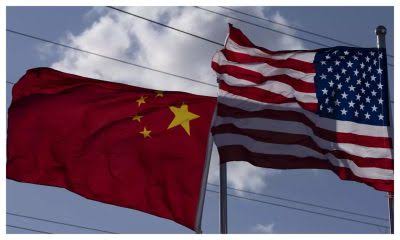News
World Bank calls for debt relief as funds vanish from poor countries

The World Bank’s top economist called on private lenders to shoulder some of the cost of debt forgiveness for the poorest countries, as record high repayments drain budgets that should be focused on health, education and infrastructure.
Interest payments alone by the lowest-income nations ballooned to a record $34.6 billion in 2023, quadrupling over the past decade, the bank said in its latest International Debt Report. Including principal, those 78 nations are paying $96.2 billion annually to service $1.1 trillion in debt.
More alarming, according to Chief Economist Indermit Gill, is that private lenders have pulled almost $13 billion more in service payments from those countries than they injected in new financing over the last two years. That burden is diverting funds from urgently needed investments at home, in areas from public health to climate change.
The World Bank’s latest warning caps a period of growing strain on the finances of poor countries, after a pandemic that forced higher spending and then a worldwide surge in interest rates that raised debt costs. Countries including Sri Lanka and Zambia have defaulted since Covid hit, while others like Pakistan and Kenya teetered on the brink — and international efforts to agree on a wider fix, including relief from private loans too, kept hitting snags.
“It’s time to face the reality: the poorest countries facing debt distress need debt relief if they are to have a shot at lasting prosperity,” Gill wrote in the forward to the report released Tuesday. “Private creditors that make risky, high-interest loans to poor countries ought to bear a fair share of the cost when the bet goes bad.”
For all developing countries, including massive and stable economies such as China and India, total debt payments hit $1.4 trillion last year — including interest of $406 billion — on $8.8 trillion in debt. Over the past two years, that broader group has paid private investors $141 billion more than they’ve seen in new loans, according to the World Bank report.
“That reflects a broken financing system,” Gill wrote, adding that the idea hatched a decade ago that private capital could flood into poor countries to turbocharge development “proved to be a fantasy.”
Gill’s verdict comes as the bank’s president, Ajay Banga, has made one of his top priorities incentivizing more private capital to invest in development alongside multilateral lenders.
The bank is also working with its sister institution, the International Monetary Fund, to steer countries in debt distress toward policies that bolster their finances and lower borrowing costs.
Many nations accumulated debt piles by borrowing heavily in the pre-Covid years when interest rates were low — especially from China and private lenders, which have grown to be significant creditors to poor countries. Problems escalated when the pandemic pushed governments into emergency spending, and then interest rates rose to fight post-Covid inflation.
The consequences are still playing out. A report by credit rating firm S&P Global in October predicted that “sovereigns will default more frequently on foreign currency debt over the next 10 years than they did in the past.”
The flight of private capital from emerging markets has continued this year. Investors using hard currencies such as dollars or euros have pulled roughly $13.6 billion from emerging-market debt funds in 2024, after withdrawing almost $23 billion the previous year, according to data from Bank of America.
The biggest risks are concentrated among the 78 poorest countries categorized by the World Bank as eligible to receive low- or no-interest financing and grants from its International Development Association fund.
Many of those countries face “a metastasizing solvency crisis that continues to be misdiagnosed as a liquidity problem,” Gill wrote.
News
Olorogun Olori hails Wike’s political sagacity in South South
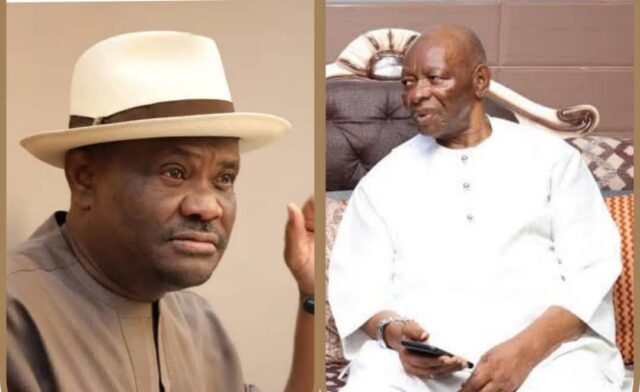
Elder statesman, Olorogun Morrison Olori, has hailed the Minister of the Federal Capital Territory, Chief Nyesom Wike, for his outstanding political leadership in the South-South region and his strategic role in advancing President Bola Ahmed Tinubu’s Renewed Hope Agenda.
Olori, an octogenarian and chieftain of the All Progressives Congress (APC) in Delta State, particularly praised Wike for his transformative work as Minister of the Federal Capital Territory (FCT).
In a statement made during a public policy dialogue in Abuja, Olorogun Olori hailed Chief Wike as “a tireless bridge-builder and result-oriented leader who has brought stability and strategic political direction to the South-South and beyond.”
Chief Wike has not only strengthened the political base of the South-South region but has also become a key player in driving the Renewed Hope Agenda of President Tinubu through inclusive governance and infrastructural transformation,” Olori said.
Highlighting Wike’s impact as FCT Minister, Olori pointed to the minister’s record-setting performance in the signing of over 5,000 Certificates of Occupancy, as well as his aggressive infrastructure renewal across the city, including road expansions, urban beautification, and housing developments. He described Wike’s efforts as “a masterclass in leadership and vision.”
“His work in Abuja has demonstrated that the Renewed Hope Agenda is not just a slogan—it is being implemented in concrete ways. He is delivering real, visible change,” Olori noted.
Olorogun Olori also emphasized Wike’s political courage in rallying support for national unity and economic revival, particularly in the South-South geopolitical zone, where he continues to serve as a stabilizing force and a voice of progress.
“Wike has used his influence not for personal gain, but to elevate the South-South and to help President Tinubu consolidate the gains of this administration,” Olori added. “This kind of partnership between the presidency and regional leaders is exactly what Nigeria needs right now.”
Olori, however, urged other political leaders to emulate Wike’s commitment to excellence and patriotism, emphasizing that Nigeria needs more leaders who “serve with sincerity and deliver with impact.”
News
Nigeria Felicitates with South Africa on 31st Freedom Day Anniversary

By Gloria Ikibah
Nigeria has congratulated South Africa on the celebration of its 31st Freedom Day anniversary, marking more than three decades since the end of apartheid rule.
This was contained in a statement issued by the Ministry of Foreign Affairs, on Sunday in Abuja, the Minister, Ambassador Yusuf Maitama Tuggar, extended warm greetings to his South African counterpart, His Excellency Ronald Lamola, Minister of International Relations and Cooperation.
Ambassador Tuggar described the day as a reminder of the historic victory of democracy over apartheid and a celebration of the resilient and unified spirit that continues to shape South Africa’s journey.
“Nigeria and South Africa share a profound bond forged through decades of solidarity in the liberation struggle. As we reflect on this milestone, we recall Nigeria’s unwavering support for the anti-apartheid movement, including diplomatic, material, and moral contributions that underscored our commitment to justice and the ethos of pan-Africanism,” the statement read.
Highlighting the strong bilateral ties between the two countries, Tuggar emphasized the shared responsibility Nigeria and South Africa have in promoting peace, security, and inclusive development across the African continent.
He noted that as Africa’s two largest economies and democracies, there is a need to strengthen collaboration in areas such as trade and investment through the African Continental Free Trade Area (AfCFTA), as well as cultural exchanges and youth empowerment.
“Therefore, on this Freedom Day, we stand with South Africa in honouring the sacrifices of heroes like Walter Sisulu, Nelson Mandela, Govan Mbeki, Thabo Mbeki and recommit to working together to realize the vision of a prosperous, peaceful, and united Africa,” he added.
News
Enugu Reps caucus backs concessioning of Enugu airport
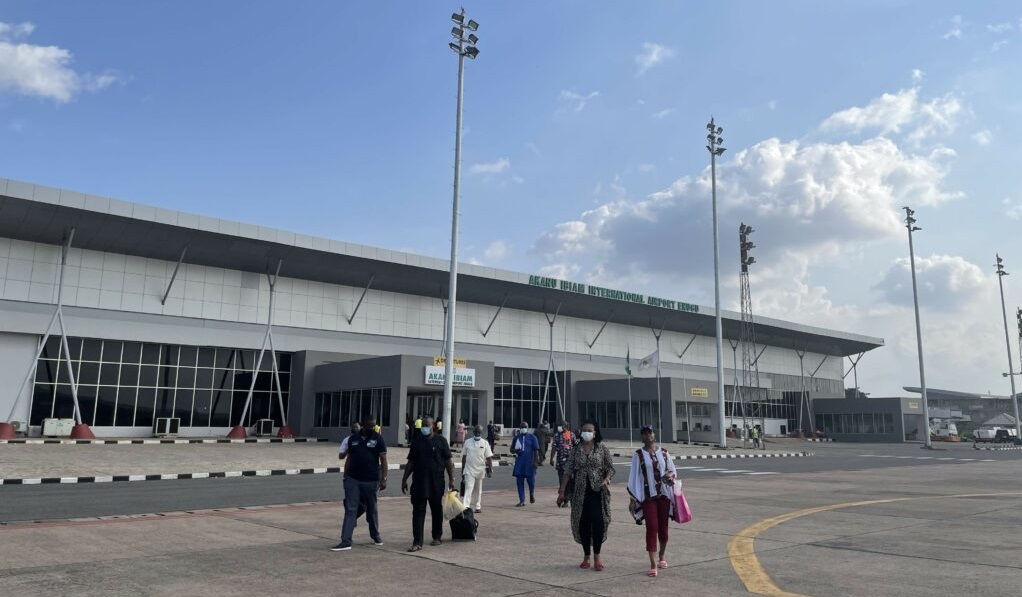
The Enugu Caucus in the House of Representatives has thrown its weight behind the Federal Government’s plan to concession the Akanu Ibiam International Airport, Enugu, describing it as a potential catalyst for the Southeast economy.
The caucus commended the Federal Government for the initiative and urged it to hasten the process to enable the people of the Southeast and the nation to benefit from it in earnest.
It also called on the people of the region to support the concession as the only way to guarantee sustainable investment to fully develop the airport into a truly international facility.
-
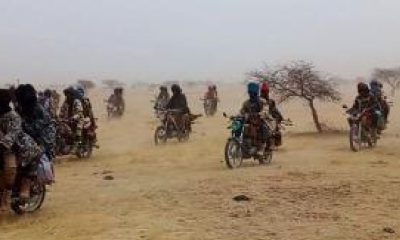
 News12 hours ago
News12 hours agoInsecurity: BUDA urges govt to quickly rescue Baruten from terrorists
-

 News17 hours ago
News17 hours agoJust in: Senator Natasha tenders satirical ‘apology’ to Akpabio
-

 News13 hours ago
News13 hours agoUNUSUAL! Without invitation, Police declared me wanted — Daughter of ABC Transport owner
-
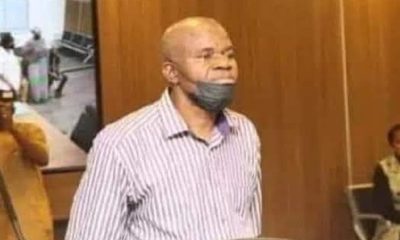
 News8 hours ago
News8 hours agoBreaking: Late gospel singer Osinachi’s husband sentenced to death by hanging
-
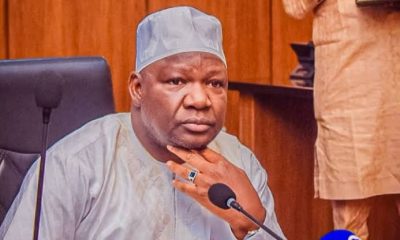
 News10 hours ago
News10 hours agoWeeks to 2nd anniversary, Niger deputy gov, plans to resign, move out personal effects
-

 Metro19 hours ago
Metro19 hours ago‘My husband always makes love throughout the night until morning’ – Woman Wants Divorce
-
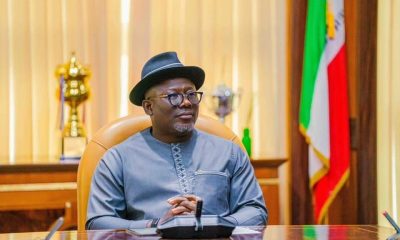
 News15 hours ago
News15 hours agoGov Oborevwori’s top aide suddenly resigns from govt
-

 Entertainment13 hours ago
Entertainment13 hours agoMy tongue slipped, Annie Macaulay apologizes after referring to Herself as ‘Idibia’ at Headies 2025


